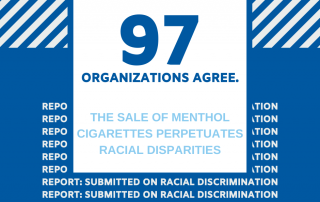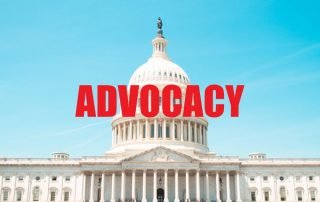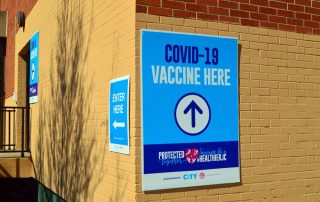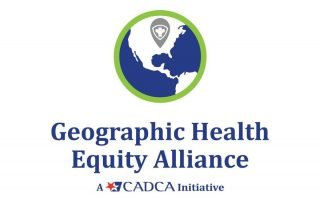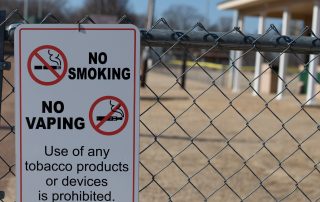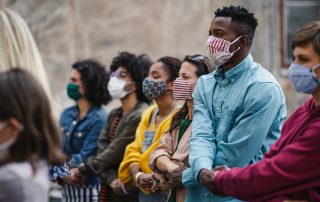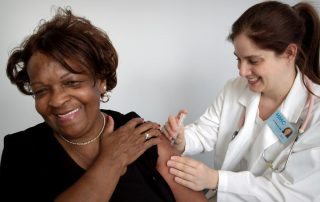97 Organizations Call on Human Rights Committee to Address Menthol
This week, Counter Tools along with 96 other organizations submitted a report to the Committee on the Elimination of all forms of Racial Discrimination (CERD), an international human rights body made up of independent experts responsible for monitoring the implementation of the International Convention of the Elimination of All Forms of Racial Discrimination (ICERD). The [More]
Letter to Labor-HHS to fund CDC’s Social Determinants of Health program
As Congress works to draft the Labor, Health and Human Services, Education and Related Agencies (Labor-HHS) appropriations legislation for FY 2022, the 191 undersigned organizations request that the Centers for Disease Control and Prevention’s (CDC) National Center for Chronic Disease Prevention and Health Promotion (NCCDPHP) be properly funded at $50 million for its Social Determinants [More]
Strategies for achieving health equity in COVID-19 vaccinations
April is National Minority Health Month and the theme this year from the National Institute of Minority Health (NIMH) is Vaccine Ready. We know that COVID-19 affects communities of color disproportionately, and vaccination is an important tool to protect vulnerable communities by preventing hospitalization and death. With vaccines becoming more widely available, there are efforts [More]
Announcing the 2021 Geographic Surveillance Learning Collaborative
The Geographic Health Equity Alliance and Counter Tools are excited to announce the second annual Geographic Surveillance Learning Collaborative for National Comprehensive Cancer Control and National Tobacco Control Programs. In this learning collaborative, teams from six participating states will each work on a project designed to build competence in the areas of mapping policies (i.e., legal mapping) and communicating about geographic health disparities. Project Details [More]
Addressing Health Disparities Through Alcohol Outlet Density
There are many ways the COVID-19 pandemic has changed our daily lives. One of many interesting public health observations is the impact of the pandemic on alcohol consumption. Thanks in part to many bars and restaurants being closed at some point during the last year, off-premise alcohol sales saw a significant spike in spring 2020 [More]
Counter Tobacco Podcast: Equitable Enforcement in Commercial Tobacco Control Policy (Episode 24)
In this episode, we talk with Natasha Phelps, a Lead Senior Staff Attorney at the Public Health Law Center, about the recent statement on “Decriminalizing Commercial Tobacco: Addressing Systemic Racism in the Enforcement of Commercial Tobacco Control” that was released last year by a consortium of public health organizations. We take a deeper dive into [More]
Supporting our AAPI communities
Our Counter Tools team mourns the loss of the eight victims of the Georgia shootings. We stand with the Asian, Asian-American, and Pacific Islander communities. No one should have to experience violence or live in fear because of their ethnic, cultural, national, gender, or occupational identity. Tragedies like the Georgia shootings call us to reflect [More]
Improving Social Determinants of Health Act reintroduced
The Improving Social Determinants of Health Act was first introduced in July 2020. The bill was reintroduced by Rep. Nanette Barragán (CA-44) on January 21, 2021. This legislation would empower public health departments and community organizations to act as chief health strategists in their communities and lead efforts to convene partners across sectors to build [More]
Upcoming webinar: Equitable enforcement in commercial tobacco control
Counter Tools is partnering with The Center for Black Health & Equity and ChangeLab Solutions to discuss how local and state partners can advance equitable enforcement practices in commercial tobacco control. Join us on Tuesday, February 9, at 2:00 pm ET / 11:00 am PT to learn how to apply equitable enforcement strategies to your [More]
Reflecting on health equity and our work in 2020
2020 was a challenging year and inspired us to rethink our understanding of inequities, strive to learn more, and be better. In this post we look back at a year focused on health equity and celebrate new partnerships. 2020 was an opportunity for many of us to examine our commitment to racial and health equity [More]
Considering social vulnerability and health equity in COVID-19 vaccine allocation
Health equity is being considered in discussions of vaccine allocation for perhaps the first time in our history. Official recommendations for vaccine distribution may include the CDC’s Social Vulnerability Index as a way of incorporating the disproportionate impacts of COVID-19 on certain communities into determination of priority groups. The pandemic has heightened focus on disparate [More]
Counter Tools releases stance on Equity, Diversity, and Inclusion
Counter Tools has released a stance that defines how we approach equity, diversity, and inclusion with our current partners and clients and those we have the opportunity to work with in the future. Included is our overall vision and key ways we will continue to address equity, diversity, and inclusion. At Counter Tools, we feel [More]
Counter Tobacco Podcast: Equity in Point-of-Sale Tobacco Control (Episode 22)
This episode is all about working towards health equity with point-of-sale tobacco control. We discuss some of the drivers behind inequities in tobacco use and related morbidities and mortality, and how we can use a pro-equity approach to plan, implement, and enforce policies that allow all individuals and all communities a fair and just opportunity [More]
Tobacco Control Enforcement for Racial Equity – A joint statement from public health organizations
This fall, Counter Tools joined a working group of public health advocates to develop a collective statement on equitable tobacco control enforcement. More than 40 public health organizations endorsed and released the statement this month, titled Tobacco Control Enforcement for Racial Equity: Decriminalizing Commercial Tobacco – Addressing Systemic Racism in the Enforcement of Commercial Tobacco [More]
Inspiration from a SOPHE webinar on equity and anti-racism in public health
Systemic inequities such as racism impact individuals across the social determinants of health and create unequal opportunities for individuals to stay healthy. In an engaging webinar from SOPHE, the panelists shared insights on racism in the context of both public health and society at large, and offered ways for public health professionals and others to [More]
Reflecting on Indigenous Peoples’ Day and how to become a better ally
This week marked Indigenous Peoples’ Day, which recognizes Native Americans as the first inhabitants of the Americas. In this tumultuous year as we have renewed our focus on inequities and health disparities, we must be sure to reflect and learn about the experiences of Native Americans and join the movement towards creating a new narrative. [More]
Trust for America’s Health releases recommendations to address obesity crisis
Access to healthy food or safe places to be active is inconsistent across communities and research shows that socioeconomic factors including poverty and race/ethnicity contribute to an increased rate of obesity. The State of Obesity 2020 report provides evidence-based policy recommendations for addressing the obesity crisis using a multi-sector, multi-disciplinary approach, and focuses on those [More]
Reducing Tobacco Disparities with Minimum Floor Price Laws
According to the Surgeon General, raising the price of tobacco products is one of the most effective strategies for reducing initiation, decreasing consumption and increasing cessation. While excise taxes are a common strategy for increasing tobacco prices, minimum floor price laws are another promising non-tax strategy with the potential to reduce health disparities. Each day, [More]
Mental health risks & resources for BIPOC during COVID-19
Many adults are experiencing high levels of stress during the pandemic, affecting their overall mental health and wellbeing. Inequities in the social determinants of health may further contribute to the effect on racial and ethnic minority groups. Here are a few resources for managing our emotional and mental health during this time. At Counter Tools, [More]
The Improving Social Determinants of Health Act of 2020
Social and economic conditions such as those in housing, employment, food security, and education have a major influence on individual and community health. These conditions – often referred to as the Social Determinants of Health (SDOH) – are receiving increased attention from insurance companies, hospitals, healthcare systems, and governmental agencies interested in improving health outcomes [More]

